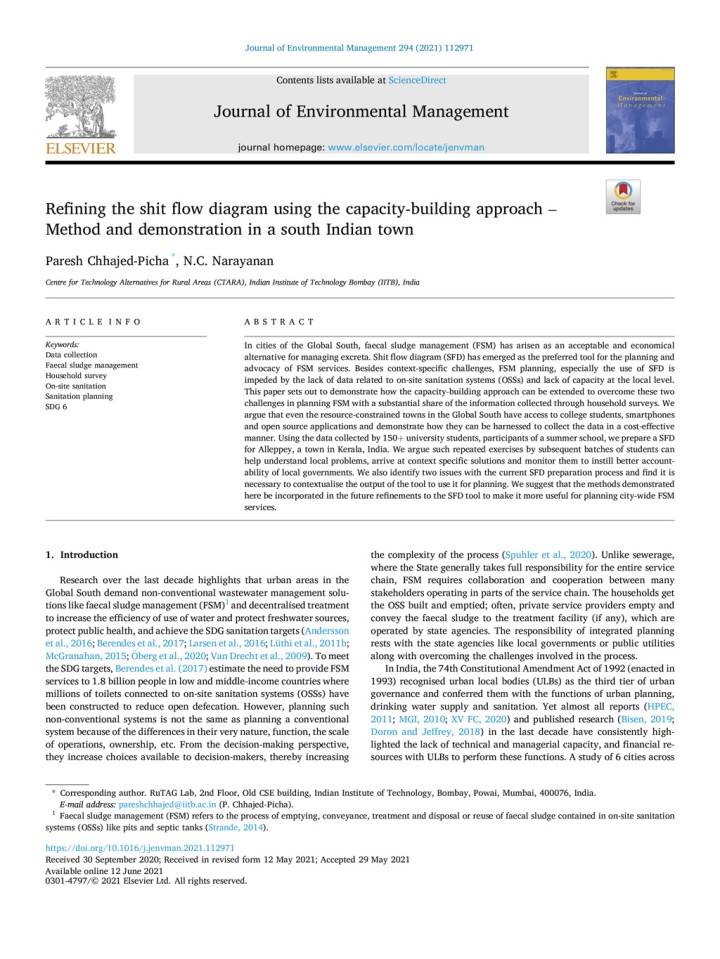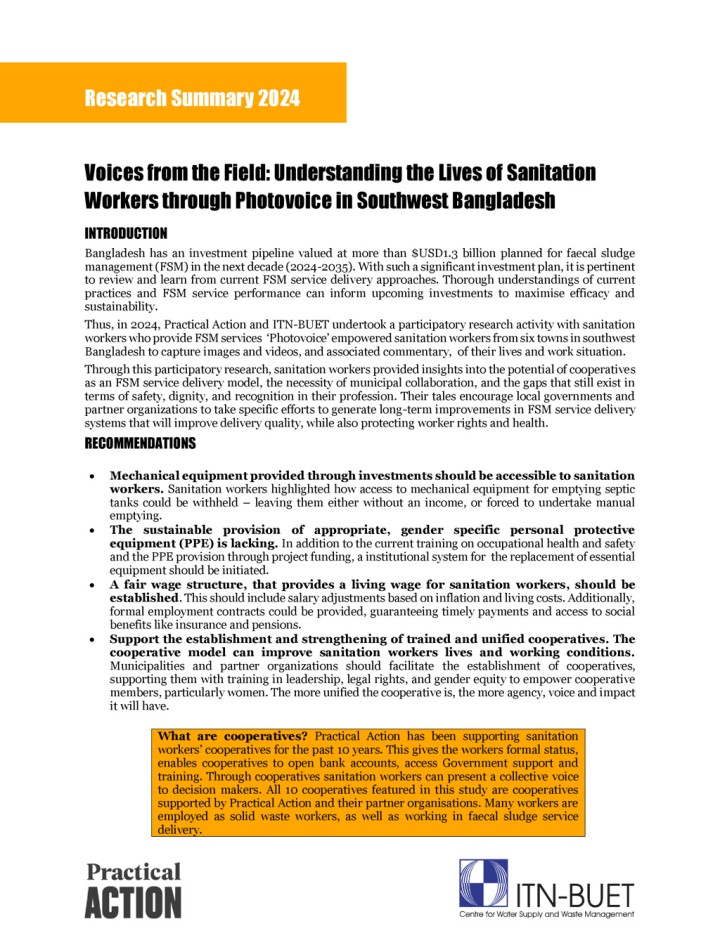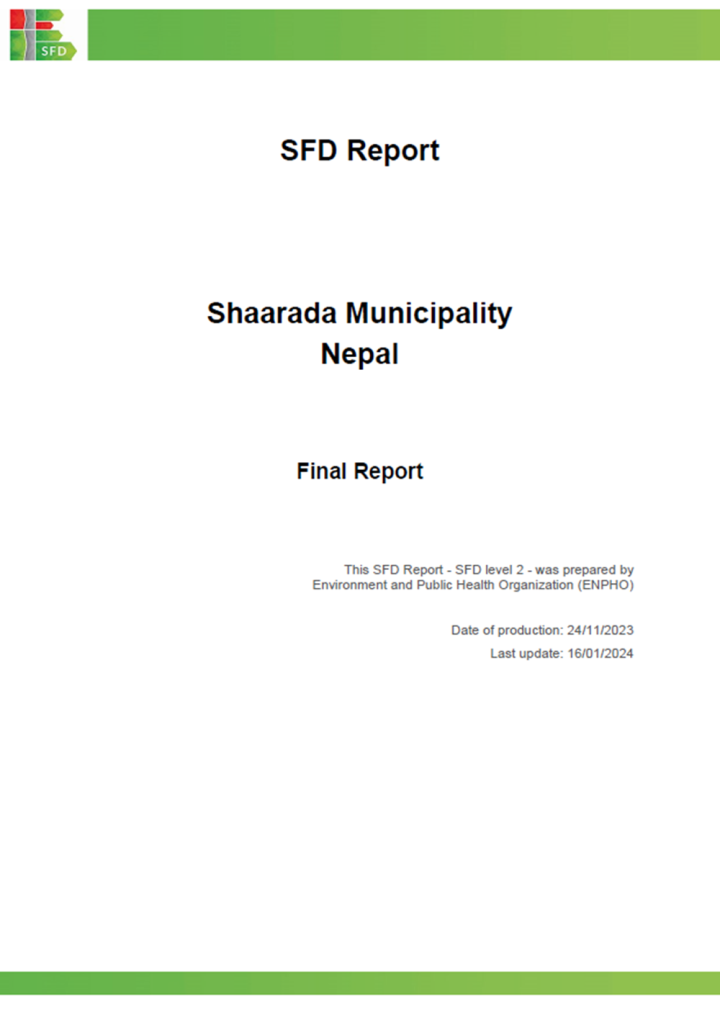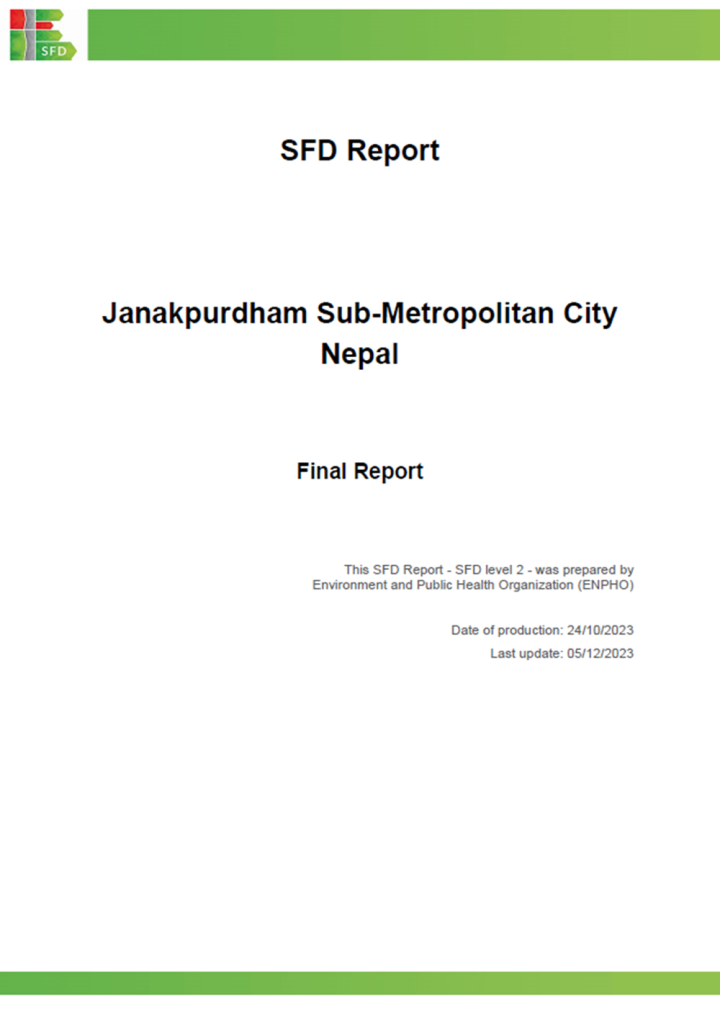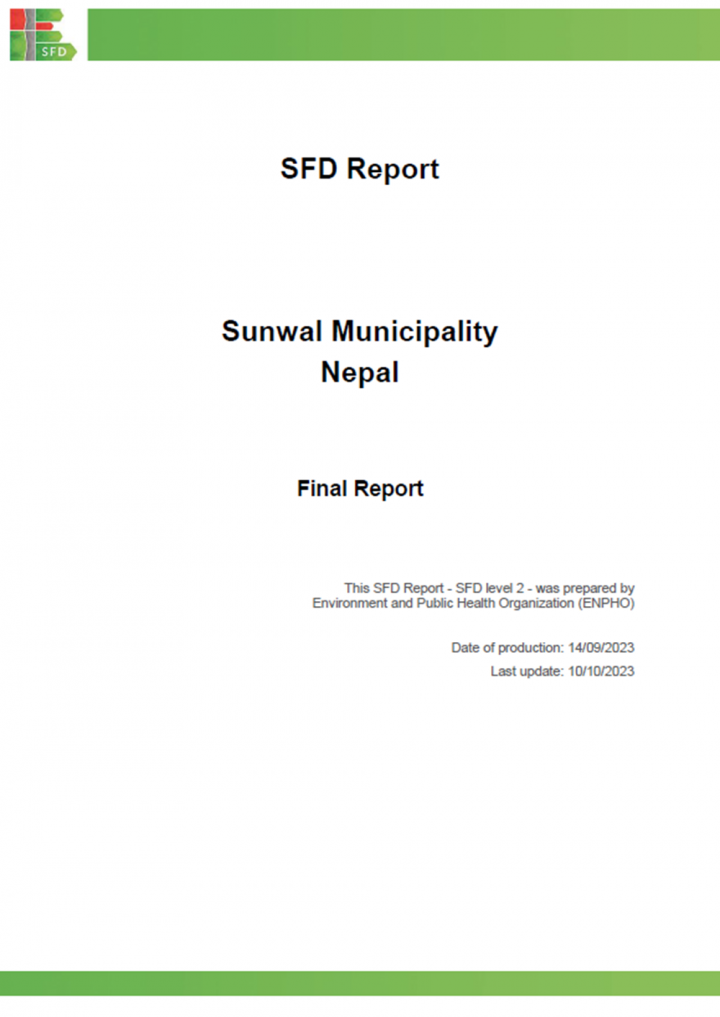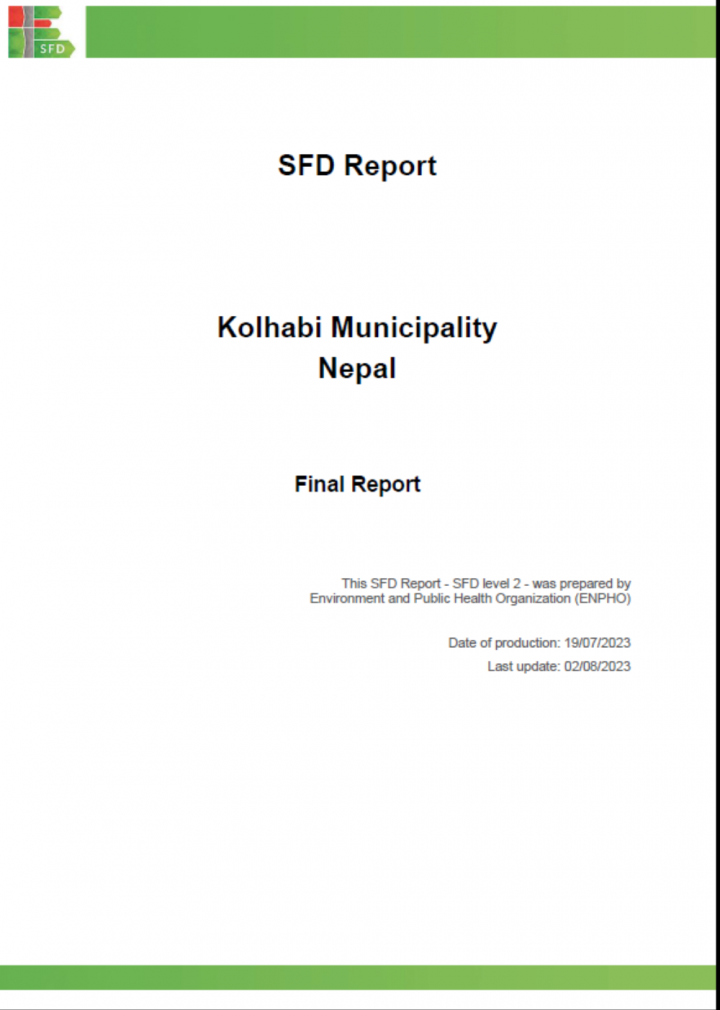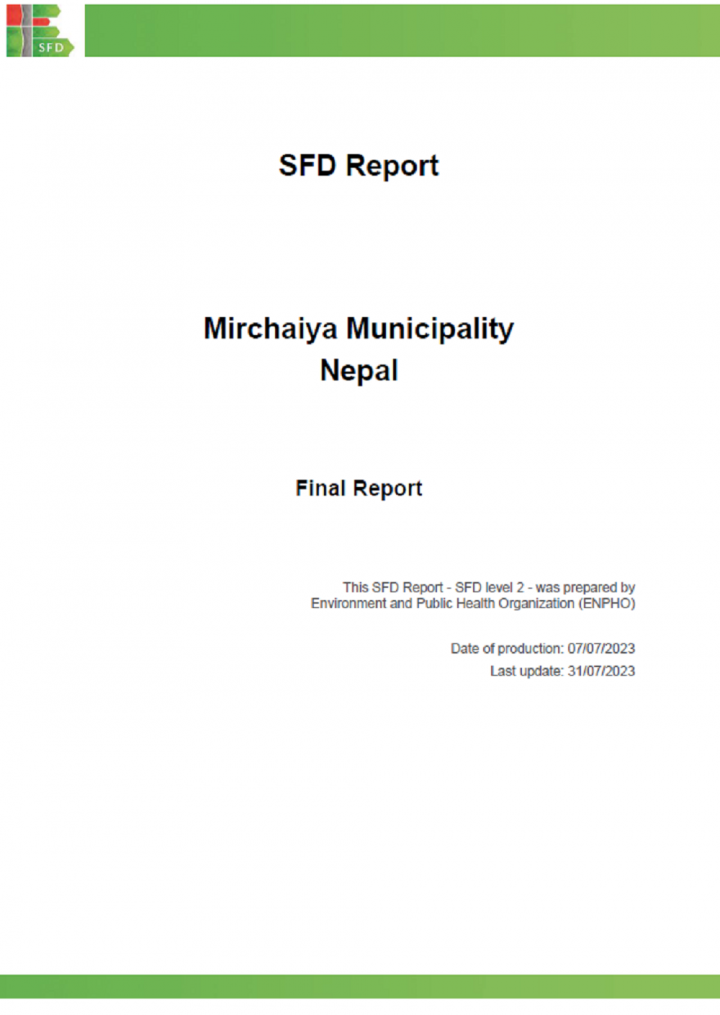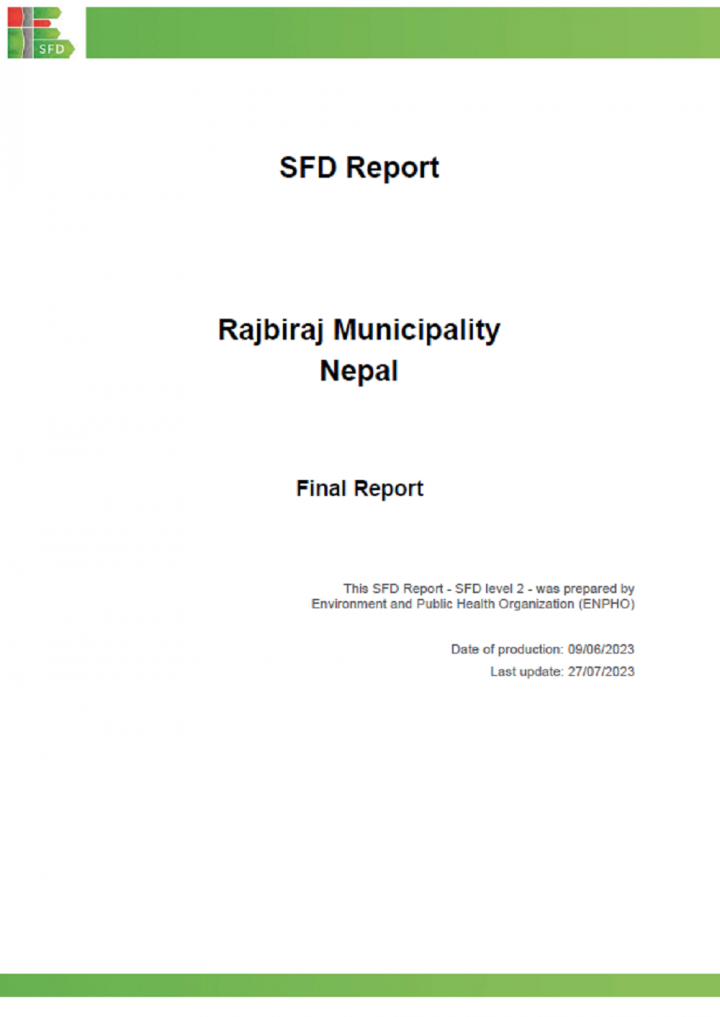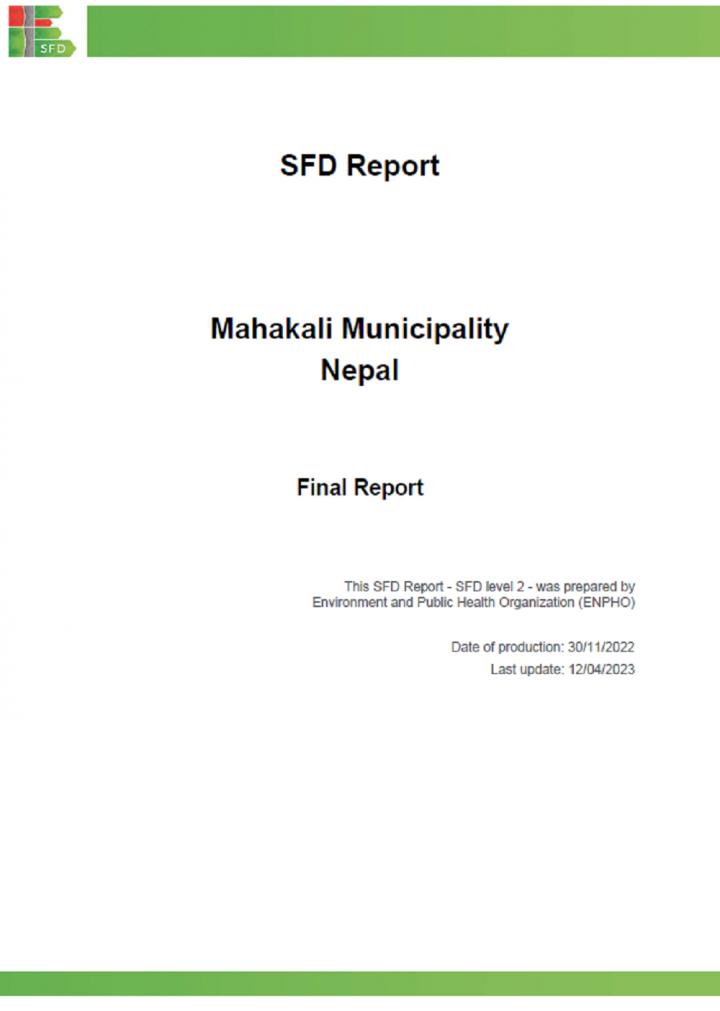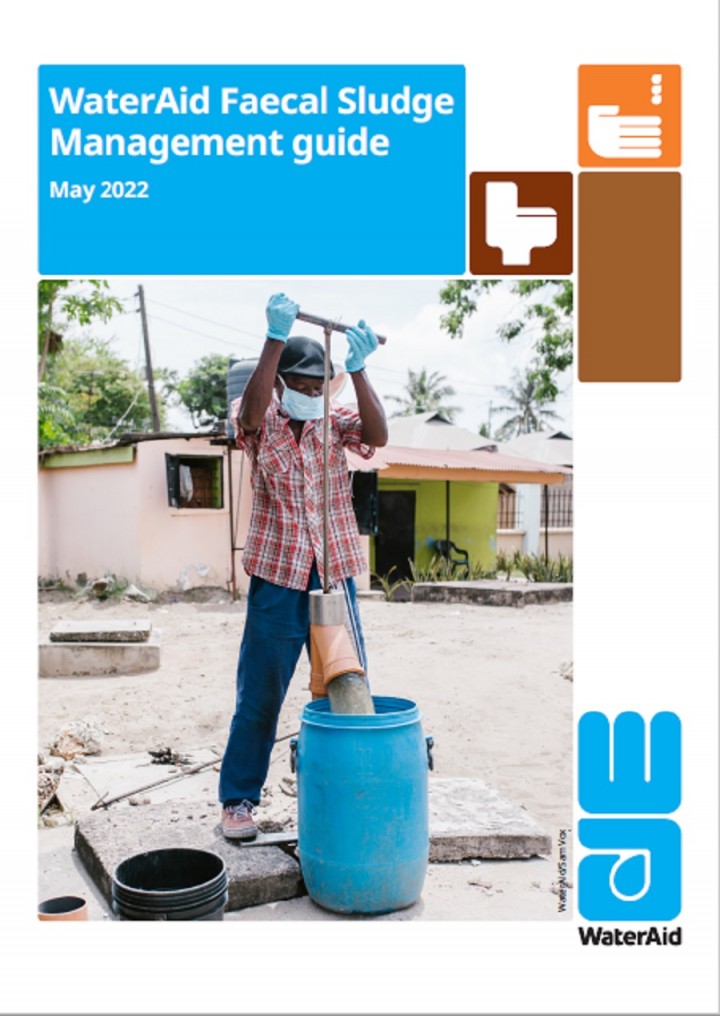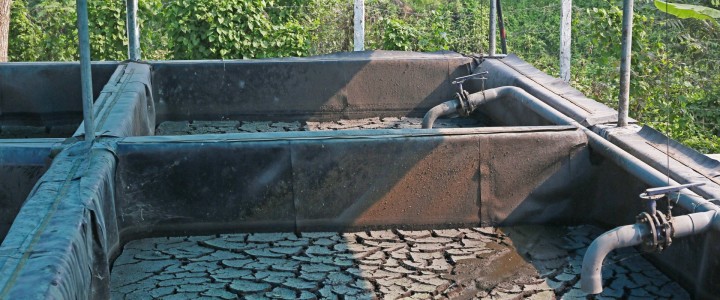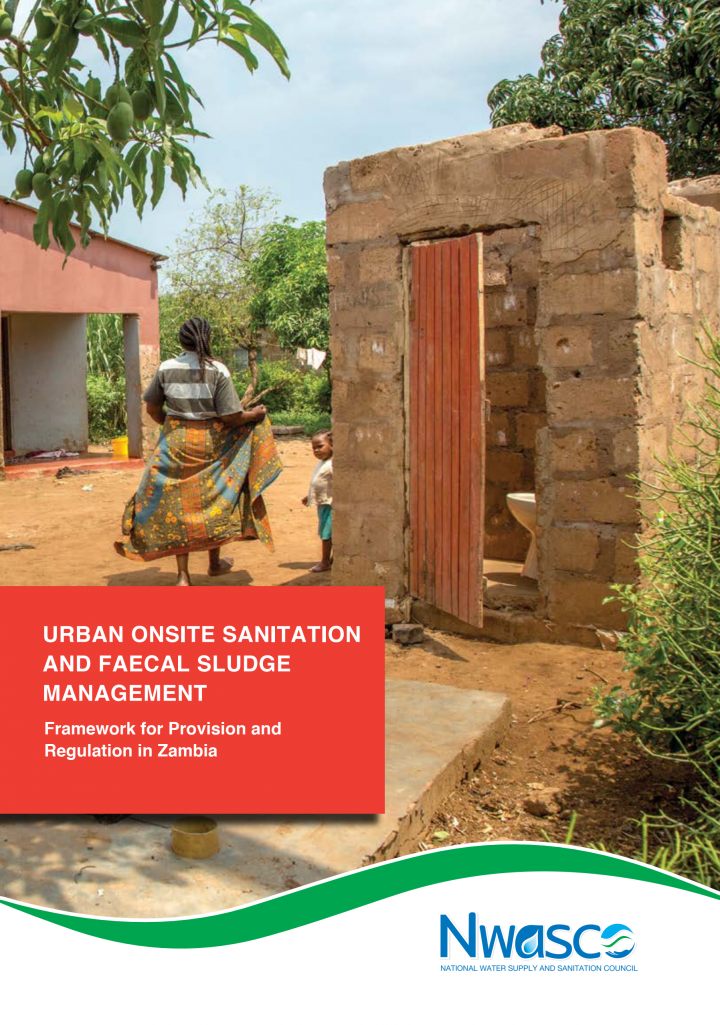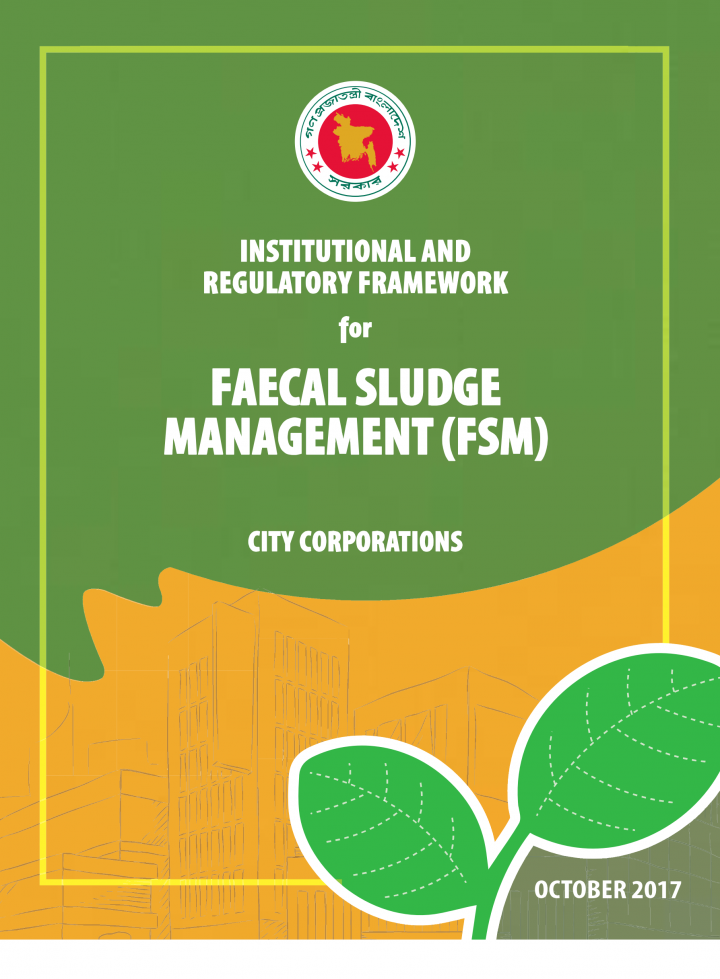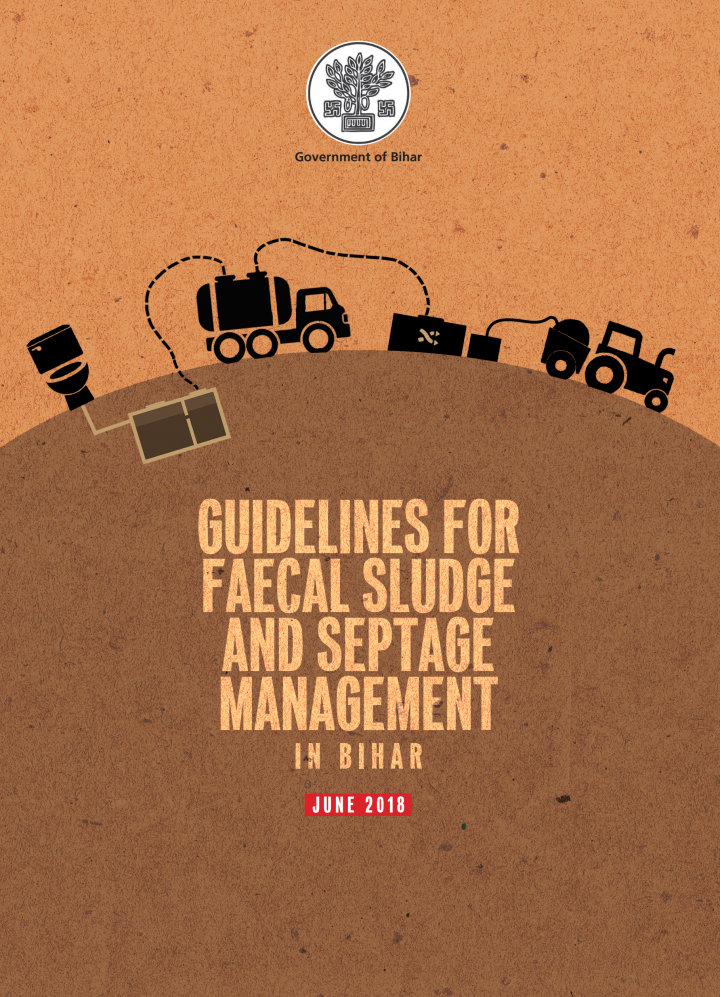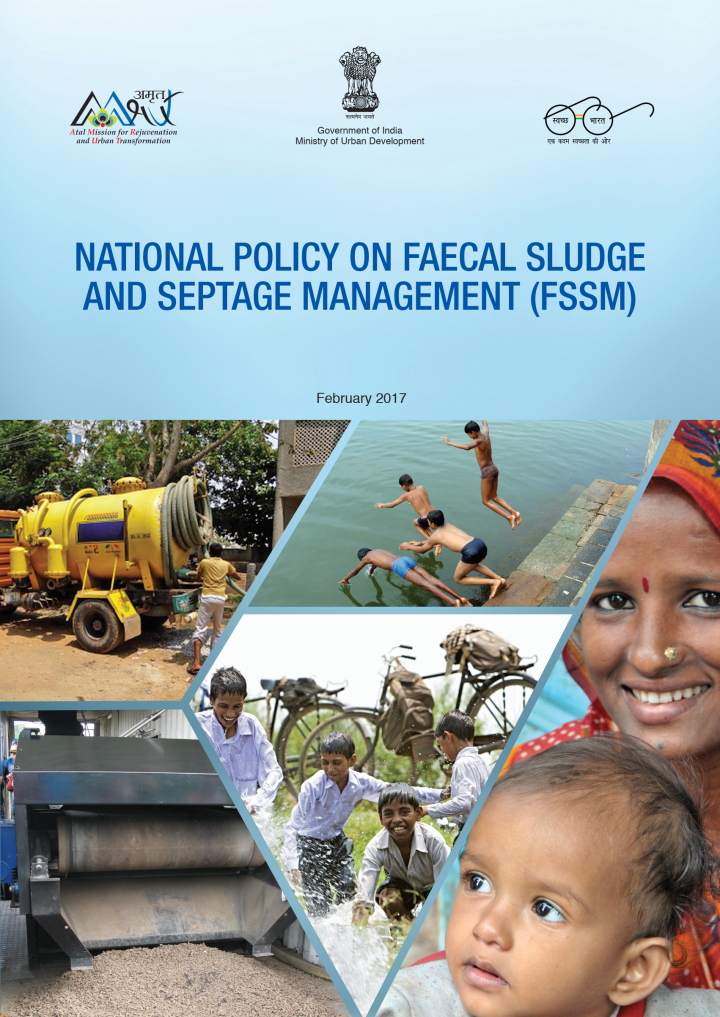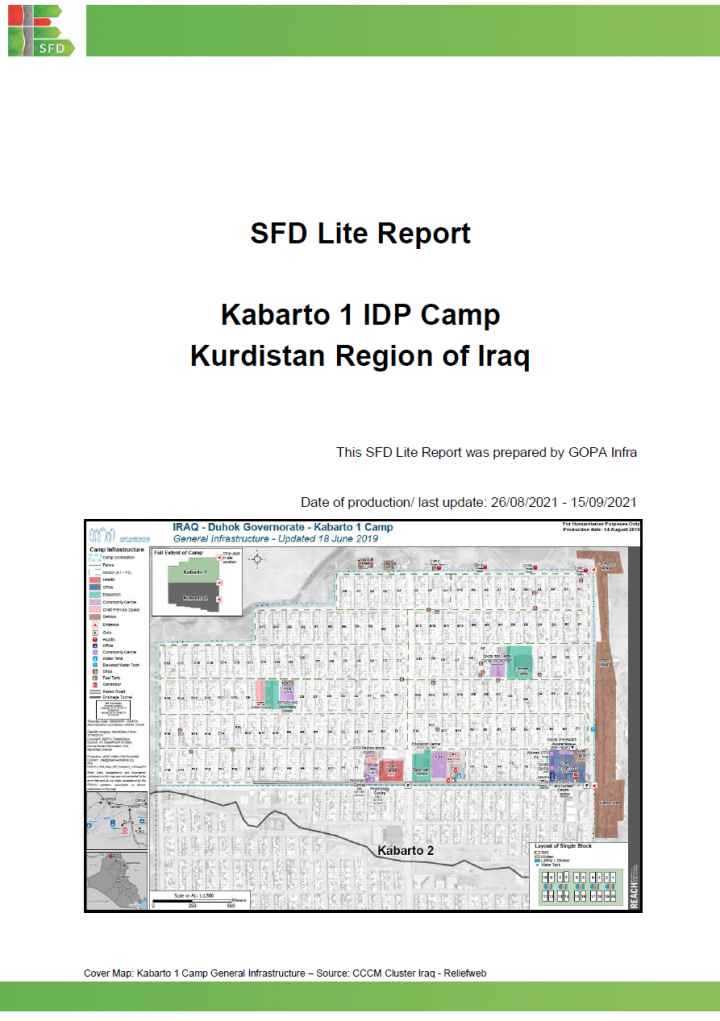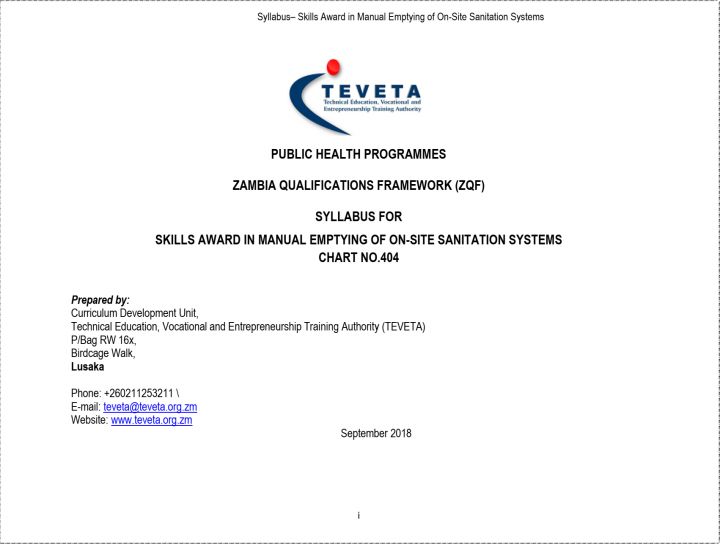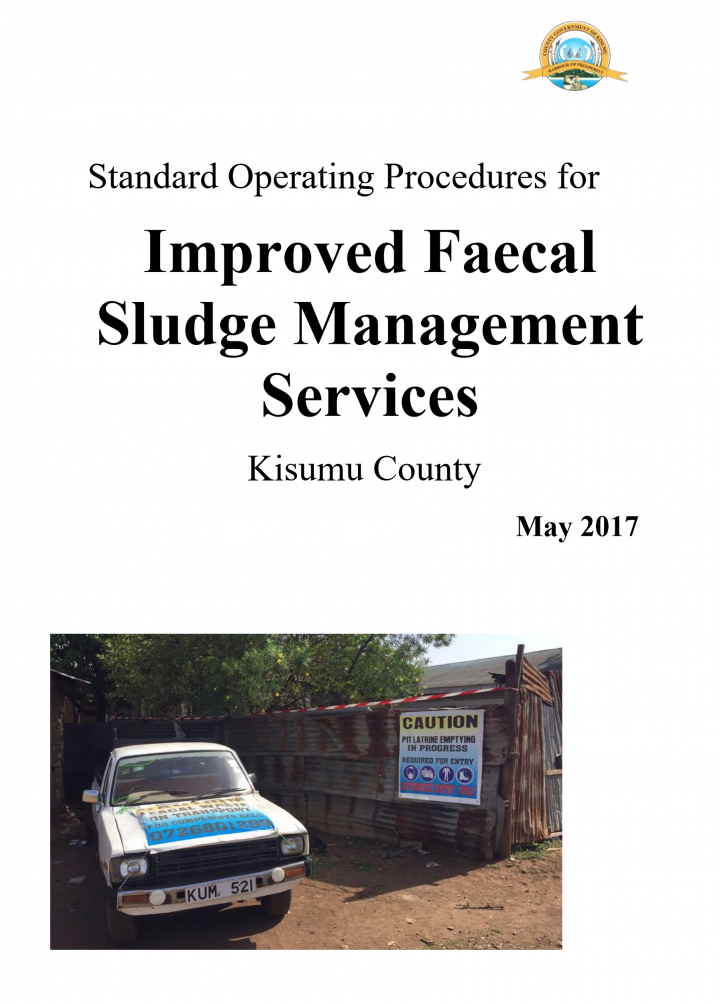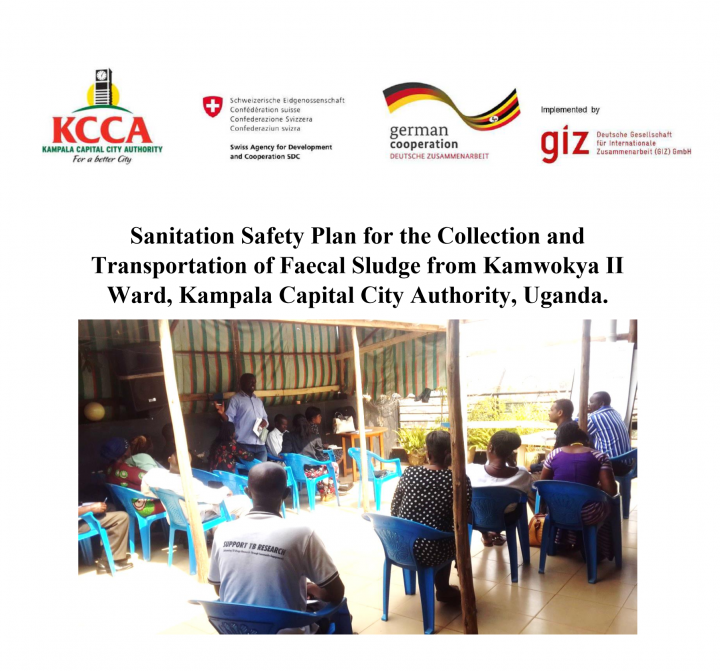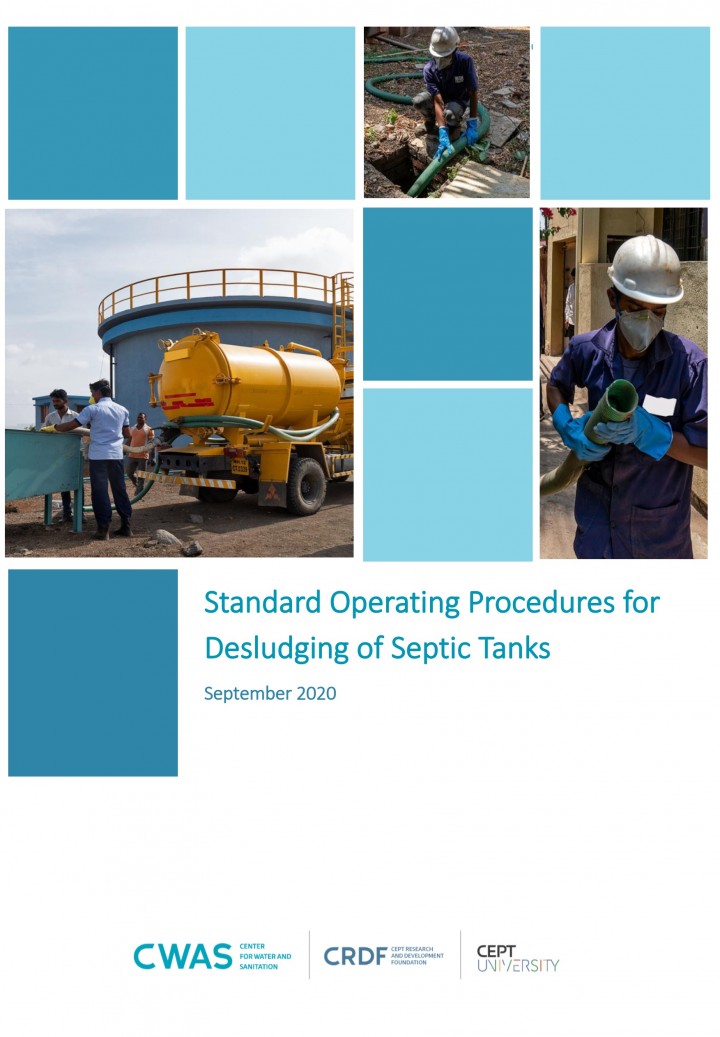Paresh Chhajed-Picha; N.C. Narayanan (2021) Refining the shit flow diagram using the capacity-building approach – Method and demonstration in a south Indian town
In cities of the Global South, faecal sludge management (FSM) has arisen as an acceptable and economical alternative for managing excreta. Shit flow diagram (SFD) has emerged as the preferred tool for the planning andadvocacy of FSM services. Besides context-specific challenges, FSM planning, especially the use of SFD is impeded by the lack of data related to on-site sanitation systems (OSSs) and lack of capacity […]
ITN-BUET Centre for Water Supply and Waste Management (2024) Voices from the Field: Understanding the Lives of Sanitation Workers through Photovoice in Southwest Bangladesh Research Summary
Bangladesh has an investment pipeline valued at more than $USD1.3 billion planned for faecal sludge management (FSM) in the next decade (2024-2035). With such a significant investment plan, it is pertinent to review and learn from current FSM service delivery approaches. Thorough understandings of current practices and FSM service performance can inform upcoming investments to maximise efficacy and sustainability. Thus, in 2024, Practical Action and […]
ENPHO (2024) SFD (level 2) Report - Shaarada Municipality, Nepal
Shaarada Municipality is situated in Salyan District of Karnali Province in the western region of Nepal. It is divided into 15 wards and covers an area of 198.34 sq. km. It was officially established on May 16, 2014 As per the national population and housing census conducted in 2021, Shaarada Municipality has a total population of 34,663 with 16,388 male and 18,275 female population. It […]
ENPHO (2024) SFD (level 2) Report - Janakpurdham Sub-Metropolitan City, Nepal
Janakpurdham Sub-Metropolitan City is situated in Dhanusa District of Madhesh Province in the southern region of Nepal. Formerly, it was established as Janakpur Sub-metropolitan City on 1960. Later on 2014, it was re-named as Janakpurdham and changed the sub-metropolitan city to sub-metropolitan city. It is divided into 25 wards As per the national population and housing census conducted in 2021, Janakpurdham Sub-Metropolitan City has a total […]
ENPHO (2023) SFD (level 2) Report - Sunwal Municipality, Nepal
Sunwal Municipality is situated in Nawalparasi District of Lumbini Province in the southern region of Nepal. It was established on May 18, 2014 by merging the Village Development Committees (VDCs), Swathi and Sunwal. On March 10, 2017, it was reformed by merging the Ramnagar area and ward 6 of Dhurkot VDC with the already-existing Sunwal Municipality. It is divided into 13 wards.As per the national […]
ENPHO (2023) SFD (level 2) Report - Kolhabi Municipality, Nepal
Kolhabi Municipality is situated in Bara District of Madhesh Province in the southern region of Nepal. It is divided into 11 wards and covers an area of 157.40 sq. km. It was restructured by merging the already-existing Kolhabi, Sapahi, Prasauna, Kakadi, Amab, Bachhanpurwa, Rampurwa Village Development Committeees (VDCs) and some wards from VDCs Sinhasani (wards 1 and 2), Haraiya (ward 6), Karaiya (ward 8) and […]
ENPHO (2023) SFD (level 2) Report - Mirchaiya Municipality, Nepal
Mirchaiya Municipality is situated in Siraha District of Madhesh Province in the southern region of Nepal. It is divided into twelve wards and covers an area of 91.97 sq. km. It was established on May 18, 2014 by merging the already-existing Village Development Committees (VDCs), Rampur Birta, Malhaniyakhori, Radhopur, Ramnagar, Mirchaiya, Phulbariya, Sitapur Pra. Da., and Madheshpur Gamharia. It lies at 26.4955° N latitude, 86.1516 […]
ENPHO (2023) SFD (level 2) Report - Rajbiraj Municipality, Nepal
Rajbiraj Municipality lies in Saptari District of Madhesh Province, Nepal. It is divided into sixteen wards and covers an area of 55.64 sq. km. It is restructured by merging with Village Development Committees (VDCs) namely (Maleth, Dighwa, Farseth, Bishharia, Deuri Bharuwa) and some wards of VDCs (Haripur-6, Madhyepura 4-7, Boriya 3-7). It lies at 26.5419° N latitude, 86.7567 °E longitude and the altitude of 76 […]
ENPHO (2023) SFD (level 2) Report - Mahakali Municipality, Nepal
Mahakali Municipality is in Darchula District of Sudurpaschim Province, Nepal. It is divided into nine wards and covers an area of 135.11 sq. km. It is formed by merging the former headquarters of Darchula district i.e., Khalanga, ward 4 to 17 of Api Municipality and Dattu Village Development Committee (VDC). It lies in the lesser Himalaya region with an elevation of 900 m to 3,100 […]
WaterAid (2022) Faecal sludge management guide
Faecal sludge management is the collection, transport, treatment and reuse or disposal of faecal sludge from pit latrines, septic tanks and other on-site sanitation technologies, and is crucial to achievement of the Sustainable Development Goals. You can use this guide as a reference document to help create better sanitation programmes, specifically to make sure sanitation is safely managed for everyone, everywhere. This guide does not replace […]
Nitya Jacob and Aditya Bhuyan (2022) Synthesis Document on the thematic discussion on building a decision tree for rural FSM
Faecal sludge management in rural areas is a fast emerging as a challenge as most toilets are single pits or containment tanks. The FSM chain, from containment and collection through transportation and treatment followed by safe reuse is very new and tenuous. While SBM II guidelines provide limited approaches, it was felt that a decision-support mechanism was needed. This thematic discussion elicited help on such […]
National Water Supply and Sanitation Council (NWASC) (2018) Urban Onsite Sanitation and Faecal Sludge Management Framework for Provision and Regulation in Zambia
After decades promoting sanitation in low and middle-income countries, several countries and the global sanitation community have come to realise that it is time to rethink the approach to accelerating access to quality services. Since 2000, the WHO/UNICEF Joint Monitoring Programme of the Millennium Development Goals (MDGs) has consistently reported that the share of the population in low and middle-income countries that use pit latrines, […]
Working Committee formed by the Local Government Division, Ministry of Local Government, Rural Development and Co-operatives (2017) Institutional and Regulatory Framework for Faecal Sludge Management (IRF-FSM)
In Bangladesh, on-site sanitation is prevalent throughout the country except for a small portion in Dhaka city, and the huge quantity of faecal sludge generated in septic tanks and pits (of pit/ pour-flush latrines) is inaptly managed. Lack of Faecal Sludge Management (FSM) services is causing severe environmental pollution, particularly in urban areas, affecting both public health and economy. Apart from Dhaka North and Dhaka […]
Govt. of Bihar (2018) Guidelines for Faecal Sludge and Septage Management in Bihar
According to Census 2011, Bihar reported 11.67 million urban population i.e. 11.25% of total population of state, dwelling in 199 urban centers (which accounts 3.14% of total urban population of country). The state has 143 statutory towns and 56 census towns. The state has 143 urban local bodies(ULBs) including 12 Municipal Corporation (Nagar Nigam), 46 Nagar Palika Parishad and 85 Nagar Panchayat. State ULBs with […]
Government of India Ministry of Urban Development (2017) National Policy on Faecal Sludge and Septage Management (FSSM)
According to Census 2011, India’s urban population is 377 million or 31% of the total population, which is expected to increase to 600 million by 2031. The Census 2011 also showed that in 4,041 statutory towns, 7.90 million households (HHs) do not have access to toilets and defecate in the opena1. Under the Swachh Bharat Mission (SBM), it is envisaged that nearly 80% of these […]
GOPA Infra (2021) SFD Lite Report Kabarto 1 IDP Camp, Kurdistan Region of Iraq
Kabarto 1 IDP Camp is situated in the KRI and located in the Sumel District, which is part of the Duhok Governorate administration, and it lies approximately 13km southwest of Duhok. The population figures are managed by the camp management on behalf of the Directorate of Migration and Crisis Response (DMCR) and, the population present at the time of the key informant interview with the camp […]
Technical Education, Vocational and Entrepreneurship Training Authority (TEVETA) (2018) SYLLABUS FOR SKILLS AWARD IN MANUAL EMPTYING OF ON-SITE SANITATION SYSTEMS CHART NO.404
Faecal sludge management (FSM) covers the whole chain from containment, emptying and collection, transportation, treatment and disposal and end-use. Faecal sludge management (FSM), nonetheless, is applied to the context of onsite sanitation (OSS) systems only. This is particularly important for Zambia where in general close to 85 percent of the population relies on on-site sanitation system. CSO (2016) showed that 77 percent of Zambians depended […]
WSUP (2017) Standard Operating Procedures for Improved Faecal Sludge Management In Kisumu County
Faecal sludge management (FSM) involves the collection, transport, safe treatment and disposal of the full contents of an on-site sanitation system e.g. a pit latrine, or a septic tank. To manage the contents appropriately; the sludge, the water and the solid waste within the containment system must be appropriately treated and disposed of. In Kisumu, approximately 75% of household sanitation systems are pit latrines, yet services […]
Abdullah Ali Halage (0) Sanitation Safety Plan for the Collection and Transportation of Faecal Sludge from Kamwokya II Ward, Kampala Capital City Authority, Uganda.
Sanitation issues are some of the most significant development challenges for Kampala City, Uganda. Like many other capital cities in developing countries, Kampala is experiencing rapid population and economic growth. However, provision of key services including adequate sanitation for the city population has not been in tandem with these developments. Kampala Capital City Authority (KCCA) with support from the Deutsche Gesellschaft fur Internationale Zusammenarbeit GmbH […]
Center for Water and Sanitation CRDF; CEPT University (2020) Standard Operating Procedures for Desludging of Septic Tanks
It is known that eradicating open defecation is only half the battle. For improving sanitation, faecal sludge and wastewater also needs to be safely managed. It is in this context that Government of India, Ministry of Housing and Urban Affairs (MoHUA) issued a National Faecal Sludge and Septage Management (FSSM) Policy3 . It recommends regular desludging of septic tanks through a systematic extraction and collection […]
